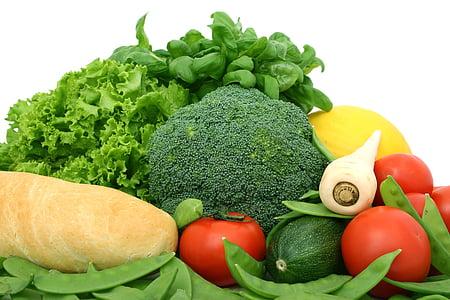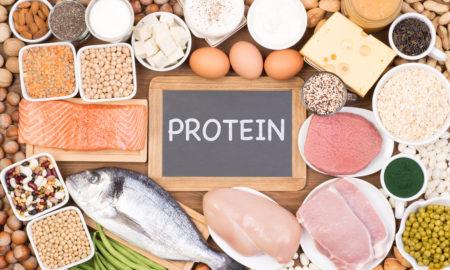

Did you know that 80% of your immune system is in your gut? Or, did you know that many of your health problems can be traced back to your gut?
The gut is the home of trillions of good and bad microorganisms, collectively known as your gut microbiome or gut flora, which play a significant role in your health.
These microorganisms (bacteria, fungi, viruses, and parasites) aid digestion, provide nutrients, regulate the immune system, produce vitamins and even keep your moods in check.
However, since the gut is a delicate ecosystem, it can be damaged by many unavoidable factors, such as food sensitivities, antibiotic use, and stress. These factors can cause the harmful bacteria to multiply and overwhelm the good bacteria, contributing to infections. This leads to leaky gut syndrome and other digestive disorders.
Why Does Gut Health Matter?
Gut health matters because it plays a significant role in ensuring you have a stronger immune system. Most of your body’s serotonin and 80% of your immune system reside in your gut.
If your gut is unhealthy (imbalanced), your immune system, serotonin, and hormones won’t function either. As a result, you become sick—that’s why most of your health problems can be traced back to your gut.
A healthy gut aids in preventing chronic diseases like heart disease and cancers, reducing inflammation, and maintaining a healthy weight and heart health.
Toxins and metabolic waste are also removed from your body through your gut. The body, however, cannot eliminate toxins efficiently if you have an imbalanced gut. This can lead to various problems, including chronic diseases, inflammation, chronic fatigue, and brain fog.
Last but not least, gut microorganisms aid the digestion of food, absorption of nutrients, regulation of the immune system and maintain your body.
10 Best Ways To Improve Your Gut Health
There are many ways to restore your gut health, but the best way will depend on the cause of the problem. However, there are common ways you can implement to improve your gut, no matter your circumstances. They include:
1. Eat Probiotic Foods or Probiotic Supplement
Probiotics are live microorganisms, primarily bacteria, that benefit your health when consumed.
Probiotic food contains live active microorganisms (bacteria) that support gut health microbiome by altering the gut flora composition and enhancing digestion.
A diet with plenty of probiotics can help improve gut flora composition, impact insulin sensitivity, and improve immunity. They manage your body’s ability to absorb nutrients and lower inflammation throughout the body. All of which affect your ability to lose body fat and build muscles.
Research from the University of Tampa discovered that giving bodybuilders a probiotic, a protein supplement and a 4-day-a-week exercise routine enhanced their capacity to acquire muscle.
If you want to ensure you’re getting enough, you may take a probiotic supplement daily— you can get them from health food stores or buy them online. However, you should talk to your doctor before taking any supplements, especially if you are under medication or have an underlying health condition.
Probiotics are found in fermented foods, such as yoghurt, kefir, miso, tempeh, kombucha, and sauerkraut.
2. Eat Fermented Foods
Fermented foods have undergone a fermentation process to become probiotic-rich foods. They can help improve your gut microbiome by replenishing the population of good bacteria and combating yeast overgrowth in the body.
A healthy gut improves your immune system and nutrition status, reduces inflammation, and improves recovery ( less fatigue). As an athlete or a bodybuilder, your performance and training increase when all these are improved.
You can find probiotics in fermented foods, such as:
- Yogurt
- kefir
- Kimchi.
- Sauerkraut
- kombucha
3. Eat Less Sugar and Refined Foods
Refined foods or anything that turns into sugar shoots up your blood sugar and then crashes, leaving you tired and hungry, making you need more sugar.
The more sugary foods you eat, the more you feed harmful bacteria, making them multiply fast and causing an imbalance of microbes in your digestive tract.
Artificial sweeteners have been shown to negatively impact blood sugar levels due to their effects on the gut microbiome, which means artificial sweeteners may raise blood sugar levels without being sugary.
Furthermore, refined foods contain zero calories. As an athlete or bodybuilder, or if you just maintaining a good physique, you should avoid any food with added sugars, artificial sweeteners, and trans fats. Instead, choose other healthy beverages to boost your performance when working out.

4. Eat Fiber-rich Foods
Fiber is crucial for keeping the digestive system functioning at its best by helping reduce constipation.
As fiber passes through the digestive tract, it attracts water and helps to bulk up stools. This increased bulk makes stools softer and easier to pass, preventing many gastrointestinal disorders like constipation or diarrhea, which may hinder you from training.
Fiber helps lower cholesterol, promotes blood sugar control, and improves heart health. Foods high in fiber include:
- Fruits such as avocado, berries, apples, and dried fruits
- Vegetables such as broccoli, swiss chards, carrots, and collard greens
- Whole grains, nuts, and beans
5. Exercise Regularly
Exercises, such as walking or jogging, contribute to good gut health by increasing blood flow, which helps move waste more quickly through the intestines.
Researchers also found it may help control obesity by improving intestinal health.
You should do at least two and a half hours of moderate-intensity activity per week and muscle-strengthening activities 2–7 days per week.
6. Drink A lot of Water
Your body contains at least 60% water, so drinking enough of it is essential to your health and the digestive tract. Water flushes out toxic build-up in your gut while lubricating your intestines to help food move through more efficiently.
Being hydrated increases strength, movement, recovery and agility, and temperature regulation, while helping mental clarity in all activities – all of which boost your performance and decrease the risk of injury.
Drink enough water, which is 3.7 liters for men and 2.7 liters for women.
If you’re not getting enough water in your diet, drink an extra glass or two each day (or more if you sweat a lot).
7. Eat a Variety of Fresh Fruits and Vegetables
Eating fresh fruits and vegetables can help maintain healthy gut flora by encouraging healthy microflora growth. They contain a lot of fiber, which some microbes in the gut can’t process, limiting their growth.
Legumes and beans are also suitable for restoring gut microbes since they are fiber-rich. Some rich fiber foods include:
- Apple
- Beans
- Bananas
- Broccoli
- Lentils
- Whole grains
- Green peas

8. Manage Stress
Stress wreaks havoc on the nervous system and can affect gut health. Studies suggest social stressors can alter the microbes in the gut, even if the stress is temporary.
Reduce stress by getting enough sleep, exercising regularly, eating a healthy diet, and progressively relaxing your muscles.
9. Eat Prebiotics Foods
Prebiotics are non-digestible carbohydrates that promote the growth of beneficial bacteria in the colon.
Probiotics feed on prebiotics to become more tolerant to specific environmental conditions such as temperature and pH changes. This process supports healthy bacteria growth while making it harder for harmful bacteria to grow.
Foods high in prebiotics include:
- Banana
- Garlic
- Onions
- Leeks
- Asparagus
- Artichokes.
- Green bananas
- Jicama
10. Get Enough Sleep
Sleep deprivation can make you dizzy, slow your metabolism, and negatively impact gut microbes, increasing the risks of inflammatory diseases.
In addition, sleep deprivation has been linked to decreased immune function due to a lack of white blood cells produced during sleep.
Get enough sleep to improve your gut health. Experts recommend seven to nine hours per night to promote optimal health. If sleeping is hard for you, try sleep fitness.
BONUS TIP: Avoid Alcohol and Smoking
Limit your alcohol consumption, caffeine, and smoking since both have been proven to contribute to intestinal problems. Smoking also affects the health of your lungs and heart.
Researchers found that smoking affects the gut microbiome by enhancing harmful microbes and reducing the levels of healthy ones.
BONUS TIP: Eat Vegetarian Food
A plant-based diet promotes gut microbiome by promoting a small number of gut bacteria compared to an animal-based diet. They enhance a small number of bacteria because a vegetarian diet contains high fiber content.
According to a 2019 analysis, vegetarian diets are high in specific nutrients, which can boost the amounts of good bacteria while decreasing harmful bacterial strains to improve gut health.
However, it is not apparent if a reduction in meat consumption brings about the effects of a plant-based diet on the gut flora or if additional variables may also be at play.
Conclusion
Good gut health is the key to a healthy body. By making reasonable lifestyle and nutritional adjustments, you can improve the diversity and amount of bacteria in your gut.
You can make positive adjustments such as eating probiotics and prebiotic foods, following a plant-based diet, drinking more water, and consuming fiber-rich foods.
You can also make lifestyle changes like exercising regularly, getting enough sleep, and managing stress.
However, before adopting any significant dietary changes, consult with your doctor. Some diets, such as probiotics or vegan or fiber-rich diets, may not benefit you if you have a medical condition such as irritable bowel syndrome.






















You must be logged in to post a comment Login